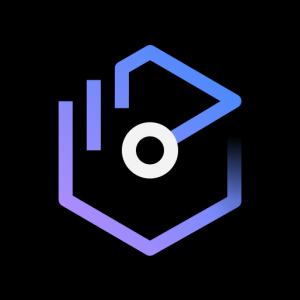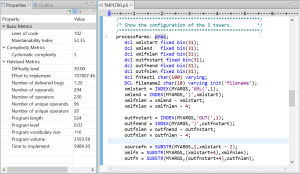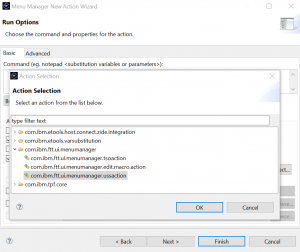Introduction
Spending many years as a mainframe application programmer I never had the time required to become a web page developer. If I had those modern web page development skills then there would be audio and video associated with this blog. Instead you will just have to imagine that magic moment when a married couple is introduced for the first time. The doors fly open, the trumpets start blaring, the confetti drops and all their friends and family start cheering. Now that you have that picture in your mind, let me introduce for the first time....[insert dramatic pause]...
IBM Developer for z/OS version 14.2.
IBM Developer for z/OS (IDz) is the next generation of IBM Developer for z Systems,
which of course was a follow on to Rational Developer for System z (RDz). The new version 14.2 brings along a new name in order to align with the other pieces of
Application Delivery Foundation (ADFz), such as Fault Analyzer for z/OS, File Manager for z/OS and Application Performance Analyzer for z/OS. For details about new features in those offerings, please refer to the other What's New blogs being posted today. On the host side, a couple of traditional components also have new names. Since other products now share select functions of IDz, the host components no longer use the product name but now use the functional names, "IBM z/OS Explorer Extensions" (HHOPE20) and "IBM z/OS Source Code Analysis" (HAKGE20). For more details please refer to the
Migration Guide of the IBM Developer for z/OS Host Configuration Guide.
Along with the new name, IDz v14.2 also includes a new icon. We are re-branding our DevOps portfolio. They have been part of powerful Z Systems and it will continue to be our intention to give DevOps products a more modern and unified look and feel. As we are still in progress with this transformation, more branding updates will be introduced on the UI screens, web sites, and other materials in the future.

Installation
While we changed the name and icon for the IDz client, we did not change our statement about
Backward/Forward compatibility between client and host versions. Therefore you can update your IDz clients to version 14.2 before or after you update your IDz host.
For those not ready to move up to the new IBM Developer for z/OS 14.2 version, we have also delivered an update to IBM Developer for z Systems with version 14.1.7.1. This update is required in order to provide installation compatibility with other z/OS Explorer Aqua 3.1 software being released today. In addition, version 14.1.7.1 contains multiple APAR fixes and a complete list can be found at the
Fix list for IBM Developer for z Systems. When using Installation Manager and the z/OS Explorer Aqua 3.1 repository to Update previous versions of IBM Developer for z Systems you may need to uncheck the
Show recommended only option in order to select version 14.1.7.1. Similarly for a new Install using Installation Manager and the z/OS Explorer Aqua 3.1 repository you would need to check the
Show all versions option in order to select version 14.1.7.1 of IBM Developer for z Systems.
Both IBM Developer for z Systems V14.1.7.1 and IBM Developer for z/OS V14.2 are z/OS Explorer Aqua 3.1 based offerings. These offerings should not be mixed with z/OS Explorer Aqua 3.2 (or z/OS Explorer Aqua 3.0) based offerings, or as they say "unexpected results may occur". The z/OS Explorer Aqua 3.1 offerings are based on Eclipse 4.6, while z/OS Explorer Aqua 3.2 offerings are based on Eclipse 4.8. So for IDz the only repository that should be active in your Installation Manager list of repository preferences is the z/OS Explorer Aqua 3.1 URL -
https://public.dhe.ibm.com/ibmdl/export/pub/software/htp/zos/tools/aqua3.1/.
If you are ready to install IBM Developer for z/OS V14.2 and you would like to remove the Installation Manager requirement, then you will be happy to learn that we have introduced a new installation option for IDz V14.2 known as Eclipse p2. Using this option allows you to
download IDz 14.2 as a zip file, unzip it into the folder of your choice and start using it.
I should mention that IDz V14.2 requires a new license activation kit. When you go looking for it in Passport Advantage please do not forget about the name change I mentioned above. You will need to search for IBM Developer for z/OS in order to find it. The activation kit zip file in Passport Advantage contains two parts inside, a JAR and a ZIP. You only need one of these parts, which one depends on your installation choice. The first one (JAR) is used by Installation Manager in the traditional way using Manage Licenses. The second one (ZIP) is a p2 Update Site which is used for activation of IDz p2 offerings. For details regarding how to make use of this zip file, see the
documentation for details:
New Features
Once you have installed the IDz 14.2 client the first new feature you may encounter is the Personalization Questionnaire. This questionnaire helps users personalize workspace preferences by prompting you when a new workspace is opened for the first time. When you submit your selections, it sets up the preferences accordingly. The questionnaire can also be started manually by clicking Help > Personalize My Workspace. Currently the questionnaire only includes a few preference options, but we are considering adding more in the future and would appreciate feedback from our user community.
Language Tooling
If you pay close attention to IBM Announcements then at the beginning of this week you may have seen several of them, including new versions of
IBM Enterprise COBOL for z/OS, and
IBM Enterprise PL/I for z/OS. In sticking with our tradition, IBM Developer for z/OS provides immediate support for these new compiler versions. When your organization is ready to move to Enterprise COBOL for z/OS V6.3 or Enterprise PL/I for z/OS V5.3 the editors and tools in IBM Developer for z/OS and IBM Developer for z/OS Enterprise Edition (IDz EE) are ready as well.
One of those "tools" is the IBM z/OS Debugger component. Besides supporting the new compiler versions it has also been enhanced to provide:
- REST APIs for profile management
- A new Toggle Section Breakpoint action
- IMS Transaction Isolation setup simplification (IDz EE)
- IMS Transaction Isolation support for IMS-managed ACBs (IDz EE)
For more details please refer to the
IBM z/OS Debugger Customization Guide.
A very popular feature that was previously only available in the z Systems LPEX editor is now also available in the COBOL and PL/I editors. The auto comment feature can now be used to automatically flag changed lines during an edit session using the COBOL editor or the PL/I editor.
We have also introduced a new shortcut key sequence for the COBOL and PL/I editors, Alt+Shift+U will now toggle the vertical line column indicator on and off. This means developers no longer need to go into Preferences to check and uncheck this option.
The PL/I editor has also been integrated with the new PL/I Software Metrics that have been added to IBM Developer for z/OS V14.2. This integration puts access to information such as lines of code, cyclomatic complexity, and Halstead metrics at the fingertips of the developer. Simply open a PL/I program in the PL/I editor or z Systems LPEX Editor, and the metrics for that program are automatically calculated and shown in the Properties view. As I alluded to these same metrics are also now available using the Software Analyzer feature for multiple programs at a time. Then you can export the calculated metrics in XML or PDF format.

Besides enhancements for COBOL and PL/I, we have updated the core C/C++ Development Tooling to include
CDT 9.2 for Eclipse Neon. Enhancements were made to the editor, parsing support, and the code debugging environment. The editor enhancements include:
- Quick fix was added for C++ to create a class by a wizard if it is not found
- Files can be formatted partially or completely when they are saved
- Code completion for function calls in source code will list suitable substitutions
- Syntax coloring for variables passed by non-const reference
The debug enhancements include:
- In CDT traditional render support of background colors exist per memory space
- "Go to address" function was added to Rendering context menu
- Support for hovering in the traditional memory render
Did you know that several well known internet rankings
show that C and C++ are still very much favoured and in demand by developers?
DevOps Tooling
As many organizations are adopting DevOps practices one challenge they are encountering is the limitations of their traditional library management system. Meanwhile
Git is the de-facto SCM for the open source community, and becoming the standard SCM for distributed software delivery in many enterprises. IBM Developer for z/OS now includes
EGit, an Eclipse Team provider for Git. Git provides for free, the key capabilities that cannot be handled by concatenation-based library managers running on the mainframe. Full isolation and true parallel development (branching and merging) are alien to legacy mainframe SCMs.
The
IBM Dependency Based Build feature of IBM Developer for z/OS Enterprise Edition provides the ability to run MVS, TSO, or ISPF commands on z/OS through
Groovy scripts. Coupled with a dependency scanner to analyze the relationship between source files, these scripts can be used to compile and link-edit programs from Continuous Integration tooling such as
Jenkins. In IDz EE V14.2 users can now apply DBB User Build configurations on a project-level basis. This configuration will apply to all files that do not yet have a configuration specified. Then a quick build can now be run after a configuration is applied to a file or project. This build will use the pre-existing configuration on the file and instantly run the build, eliminating the previous prompting for properties. And finally, resolving dependencies now uses the "Content Types" preference to determine what extensions to check. Adding extensions to these preferences will allow users to use custom extension names for their copybooks or include files.
Another very popular feature of IDz is Menu Manager. This feature allows organizations to add their own custom menu actions to IDz. This feature has now been enhanced to allow custom menu items to invoke Unix System Services commands and scripts. The output from running these commands/scripts can then be directed to a dialog or console within IDz. As the USS side of z/OS continues to become increasingly used by organizations this opens up many possibilities for integration of custom utilities with IDz.

The z/OS Automated Unit Testing Framework (zUnit) feature within IDz has been enhanced based on user experience feedback. A new toolbar button and menu item have been added to support “duplicate” existing test entry functionality. Selecting the toolbar button or menu item creates a copy of the previously selected test entry in the Test Case Editor. This should make it easier for developers to create additional tests with different data combinations in order to increase the code coverage for the program under test.
Speaking of code coverage, doesn't it seem like so many things these days are moving to the cloud, and can be accessed using a web page. Code coverage is joining that movement. In an upcoming blog you will see how the transition started in IDz 14.1.5 and is being extended in IDz 14.2 with the introduction of the new Code Coverage as a Service (CCaaS) option. Stay tuned for more details.
Deprecations and Removals
When IBM Developer for z Systems version 14.1 was introduced back in the third quarter of 2017 we announced the deprecation of the SCLM Developer Toolkit within IDz. Now with IBM Developer for z/OS version 14.2 we have removed this feature and are no longer including the SCLM perspective in IDz 14.2. If you were still using this perspective for accessing resources under SCLM control then please let me know as we have a couple different options that could be used instead.
Speaking of deprecations, with so many open source solutions available for testing SOAP/XML based web services and REST APIs we have deprecated the Generic Service Client within IDz 14.2 It is still available within IDz and supported but at some point in the future we may stop including it.
Conclusion
Thanks again to everyone that has submitted enhancement requests for IDz in the past. If you were not aware that you could collaborate with product development and other product users regarding enhancement requests, then let me introduce you to the
RFE Community. All that you need to participate is a free IBM ID and an idea for enhancing the product. If you do not feel that you know the product well enough to contribute, then I might suggest taking the opportunity to participate in our
free remote learning sessions.